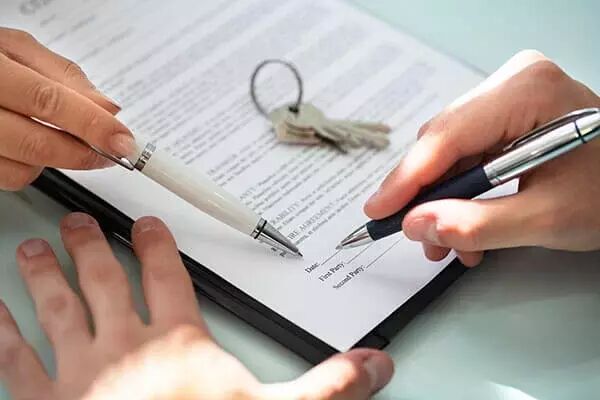Conveyancer Fundamentals Explained
Conveyancer Fundamentals Explained
Blog Article
Conveyancer Things To Know Before You Buy
Table of ContentsWhat Does Conveyancer Do?The 9-Minute Rule for ConveyancerAn Unbiased View of ConveyancerThe Facts About Conveyancer Uncovered
The prices are levied based on the Law Culture's toll guidelines. A Conveyancer needs to: Whatsoever times shield the rate of interest of his/her customers and according to the signed Sale Agreement; Keep all parties informed of the progress on their transaction and notify both celebrations of the conveyancing procedure and procedures; Recommend the parties on the conditions of the Sale Arrangement, especially concerning suspensive conditions and commitments; Advise the vendor on the termination of his bond, any kind of penalties, notice periods and other management costs which might impact the settlement number; Obtain the vendor's created guidelines before he/she, as the Conveyancer, issues any type of assurances in regard of the deal; Do every little thing in his/her power to sign up the deal on or as close as possible to the day accepted in the Sale Agreement; Encourage both celebrations on their obligations in regards to their Sale Agreement, so as to guarantee that the transfer is not postponed unnecessarily; Satisfy with both events to authorize the relevant documents connecting to the deal Prepare the deeds for lodgement with miraculous care, so as to make sure that they reduce the threat of a being rejected of the documentation by the appropriate Deeds Computer system registry; Educate both celebrations of the transfer on the day of enrollment; Account to both celebrations for funds associating with the transaction within two/ three days adhering to successful registration of the purchase in the relevant Acts Windows registry.It's part of your conveyancer's job to coordinate a negotiation time with the various other side's lawful rep, throughout which time the residential or commercial property is officially transacted and all documents and cheques are handed over. Upon settlement, your conveyancer will make call with you and/or your real estate agent to confirm settlement and permit for secrets to be turned over.
No person wants to experience a stressful or frustrating circumstance when you must simply be thrilled for your next step. This is where conveyancing can assist the process to move along efficiently. The function of a property conveyancer is to manage this lawful procedure of moving the possession and title of a home from the vendor to the customer.
However legal representatives frequently have a variety of areas they have expertise in, with conveyancing possibly being a field they don't practise in usually. The benefit of using a residential or commercial property conveyancer is that building transactions are what they accomplish frequently. They understand the procedure throughout and are really aware of it, ensuring all pertinent paperwork is offered and the procedure is accurate and prompt.
All about Conveyancer

Nevertheless, choosing an option for nothing else factor than it's more affordable might cause a lot more issues in the long term with an inaccurate or ineffective solution. Search for a fixed rate service so you know specifically what the process will certainly cost you and whether it matches your planned budget plan. Recommendations from friends or household, or reading on-line reviews can additionally work in locating a knowledgeable and effective conveyancer.

Conveyancing solicitors and accredited conveyancers both oversee the conveyancing process. A building solicitor will usually often tend to have experience in various other legal areas as well.

The Only Guide for Conveyancer
They liaise with various events, including the estate agent, vendor's conveyancer, and regional authorities. The conveyancing process starts when a deal on a building is approved.
The buyer's lawyer will ensure the customer is notified concerning the documents and legal commitments. This phase entails describing the conveyancing costs and describing the home information type. Being informed can protect against unpredicted concerns as the procedure unravels. Property searches serve a function in the conveyancing procedure. The customer's solicitor arranges these checks to reveal potential issues with the home.
Neighborhood authorities could supply understanding into close-by future growths that might impact the building's value. Home loan lending institutions often need details searches before releasing a home loan deal. While some searches could seem optional, omitting them could lead to unforeseen difficulties. A residential or commercial property's title actions stand for a historic this content document of its possession.
The Definitive Guide to Conveyancer
As soon as a deal is accepted, the seller's lawyer prepares a draft agreement. This contract pack includes essential records like the building details type, the leasehold information kind, and the installations and components form. The customer's conveyancer takes a look at these to guarantee all the check it out paperwork is regular with assumptions. At this stage, property regulation considerations arise, from common access civil liberties to what fixtures come with the residential property.
On the other hand, if the seller withdraws, they encounter fines. Both parties agree on a conclusion day following the exchange - Conveyancer. On now, the buyer pays the staying equilibrium, and the seller transfers the property secrets. There's usually a gap between exchange and conclusion for buyers to finalise details or make setups.
Report this page